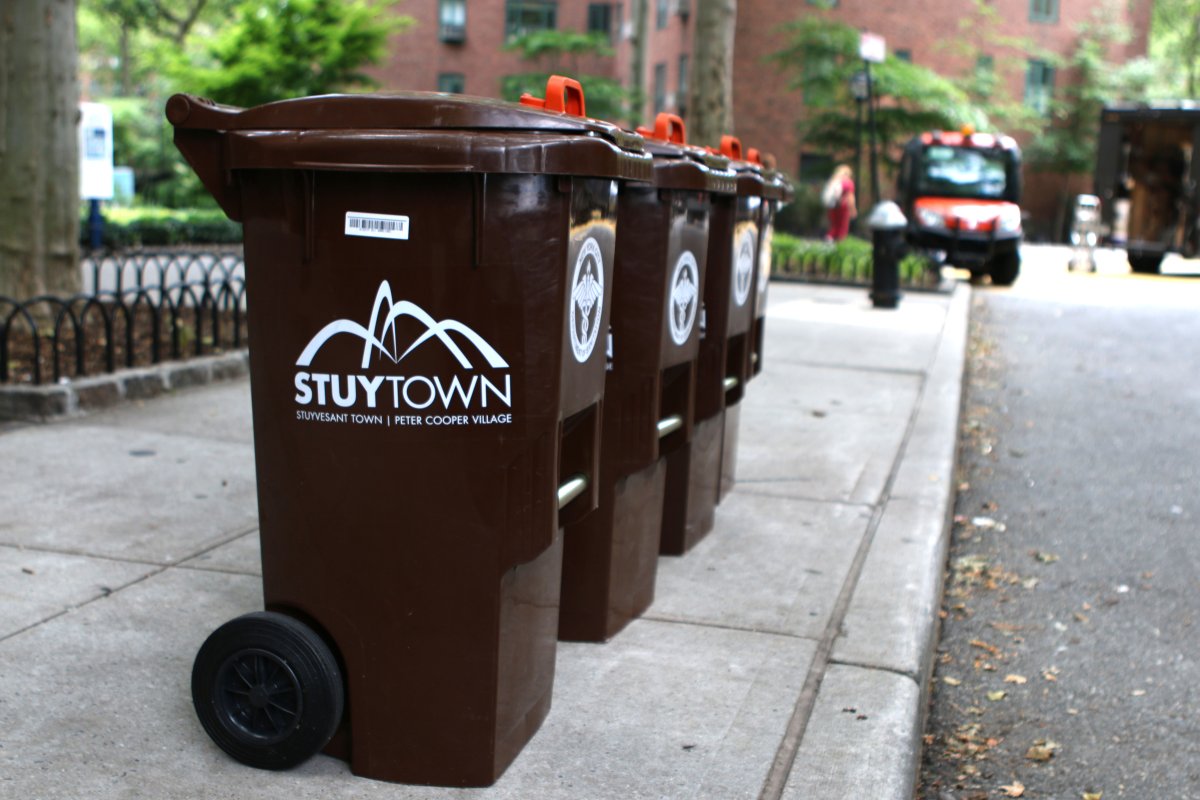
BY SCOTT R. AXELROD: Rei Moya talks a lot of trash. In fact, as director of environmental services for StuyTown Property Services, he actually talks a lot about trash, and how Stuyvesant Town and Peter Cooper Village currently has the largest organized community composting program in the city.
The 80-acre complex stretches from First Ave. to Avenue C, between 14th and 23rd Sts., with 110 buildings and more than 11,000 apartments. Last December, with a well-organized recycling program already in place, STPCV partnered with the city’s Department of Sanitation and NYC Organics to bring the roughly 27,000 residents bins designed exclusively for the disposal of organic waste. With three bins allocated to each building, STPCV residents dispose of enough household food scraps to create an average of 10,000 pounds of compost a week, which is produced at off-site composting facilities.
“Right now, about 10 to 15 percent of our residents are using the bins,” Moya said. “If we can get up to 50 percent, that would be a really big win.”
Moya, along with Marynia Kruk, the community affairs manager for StuyTown Property Services, recently gave The Villager a tour of the complex’s environmental services facility. They explained how some residents have been skeptical about participating in the composting program, since they think of the bins as little more than glorified plastic garbage cans, ripe and ready to be ripped into by vermin.
However, Moya explained the bins are lockable and also lined with biodegradable bags, and that mice and rats would have easier access to the large black trash bags that have been tossed down the buildings’ garbage chutes.
So, while composting may be a tough sell for some, Moya has worked hard to ensure that his roughly 200 staff members and STPCV residents remain committed and vigilant when it comes to keeping the community clean. Through the use of a real-time messaging system, any sanitation situation can be relayed by text message and addressed quicker than ever. Every building is also inspected every two weeks and given a score based on any maintenance needs.
“This is like managing a small city,” Moya noted. “My phone never goes on snooze.”
It’s that type of commitment to maintaining a cleaner and more sustainable community that caught the attention of the Department of Sanitation, whose commissioner, Kathryn Garcia, has cited StuyTown Property Services as an example that others can look to, as the city itself looks for ways to go greener. In fact, Moya has volunteered to meet with administrators and leaders of other housing developments to lend his expertise in helping to devise similar sanitation and recycling programs.
“My personal tagline has been that we’re making sanitation sexy,” Moya said. “If StuyTown can do it, anyone can do it.”


































